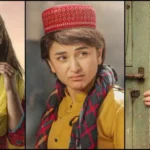Badzaat Drama Review is one of those television productions that instantly grabbed the audience’s attention because of its compelling story, dynamic characters, and high-quality direction. Pakistani drama lovers always wait for something that combines romance, tragedy, and realism in one package, and this serial delivered all of that in a fresh way. The word Badzaat itself creates curiosity — it means someone who is often looked down upon because of family background or circumstances beyond their control. From the very beginning, this drama sets the stage for a tale of emotions, love, betrayal, and the consequences of judgments based on social labels.
When people search for Badzaat Drama Review, they are usually trying to understand whether this drama is worth watching, how powerful the performances are, and whether the plot resonates with real-life issues faced by many. This is why a detailed Badzaat Drama Review becomes essential: it helps drama fans get a deeper understanding of what the serial tried to portray and how well it succeeded.
The introduction to Badzaat Drama Review also opens the door to appreciating the effort of the creative team. The writer crafted a narrative that feels relatable yet dramatic enough to keep viewers hooked episode after episode. The director maintained a balance between fast-paced twists and emotional moments, ensuring that the audience never lost interest. Meanwhile, the cast gave strong performances, turning their characters into living, breathing people with flaws, strengths, and internal conflicts.
Another reason this drama became popular is its OST (Original Sound Track). A powerful OST not only creates hype but also connects deeply with the audience. In the case of Badzaat Drama Review, the OST perfectly complemented the storyline. Its soulful lyrics and composition reflected the pain, longing, and struggle of the characters, making it memorable and widely shared across social media platforms.
In terms of cultural relevance, the drama touches on multiple layers of Pakistani society — including family honor, betrayal, and the struggle between personal happiness and societal expectations. These themes are what make a Badzaat Drama Review so important, as they highlight not just the entertainment aspect but also the social commentary hidden within the story.
Viewers who follow Pakistani dramas are often vocal about what they like and dislike. Some love slow-burn romances, while others crave constant twists. Badzaat Drama Review shows that the serial managed to strike a middle ground, offering both emotional build-up and unexpected events that kept viewers emotionally invested. For a drama industry where predictable storytelling can sometimes weaken the impact, this series felt refreshing.
When reviewing a drama like this, one must also consider how it compares with other serials released in the same period. Badzaat Drama Review indicates that it held its ground against strong competition, largely because of its unique theme and the way it was executed. Instead of relying only on clichés, the makers added new layers to familiar tropes. The main characters were not painted in black or white but were shown with shades of gray, making them more human and relatable.
Finally, the introduction of this review must underline why the audience still talks about the drama even after it ended. The storyline left a lasting impact, sparking debates on social media, drawing praise for the performances, and making viewers reflect on themes such as loyalty, betrayal, and justice. This shows the strength of Pakistani dramas when executed with passion and dedication.
To sum up, the Badzaat Drama Review introduction highlights that this drama is more than just another TV serial — it is a piece of art that combined good writing, powerful acting, and strong direction to deliver a memorable experience. As the following sections explore in greater detail, this review will cover the background information, plot summary, cast analysis, themes, and much more. By the end, readers will have a complete perspective on why Badzaat Drama Review deserves a place among notable Pakistani dramas.

Background Information
When discussing the Badzaat Drama Review, it’s important to first understand the background of how this production came into existence and why it gained so much attention in the Pakistani drama industry. Every successful serial has a story behind the story — from the writer’s pen to the director’s vision, to the actors who breathe life into their characters. Badzaat is no different, and its journey makes it even more interesting to analyze in depth.
Pakistani television has always been known for emotional storytelling, often revolving around family values, love, betrayal, and moral dilemmas. In this environment, Badzaat entered as a drama that promised something bold and intense. From the moment teasers were released, the audience noticed the emotional weight and complexity. Social media started buzzing with curiosity, and that hype contributed to the drama’s popularity once it began airing. The Badzaat Drama Review gains significance here because viewers wanted to know whether the drama truly lived up to its initial hype.
The creative mind behind the story was the writer, who focused on developing a plot that highlights societal prejudices. The word Badzaat itself refers to someone insulted or judged because of birth circumstances. In South Asian societies, family reputation is often considered more important than individual character. By choosing such a loaded title, the writer set the tone for a drama filled with emotional conflict, judgment, and redemption. The Badzaat Drama Review becomes valuable because it explores how successfully this theme was presented to viewers.
On the production side, the drama was developed under a reputed banner that has delivered several successful projects in the past. The producers were careful in selecting a director who could bring out the raw emotions and subtle tensions hidden within the story. The director’s style focused on realism, avoiding unnecessary glamour or over-dramatization. Instead, he used natural dialogues, expressive close-ups, and carefully paced scenes to create a sense of authenticity. This is why the Badzaat Drama Review often highlights direction as one of the strongest points of the entire project.
Casting played a crucial role in making the drama impactful. The lead actors were chosen not just for their star power but for their ability to portray flawed, vulnerable, and layered characters. In dramas where themes like betrayal, loyalty, and family honor are at play, it is easy for performances to become exaggerated. But in Badzaat, the cast delivered natural and convincing performances that made the storyline believable. When people read the Badzaat Drama Review, they often praise the actors for their dedication to portraying their characters with depth and honesty.
Another part of the background information lies in the release timing. Badzaat aired at a time when viewers were craving strong stories instead of typical romantic comedies or dragged family feuds. This timing gave the drama an advantage because it stood out in a crowded television schedule. Audiences were ready for something intense, and Badzaat gave them exactly that. This point is crucial for the Badzaat Drama Review because timing can sometimes determine whether a drama becomes a hit or gets overlooked.
The drama also benefited from strong marketing. Social media teasers, promotional interviews, and behind-the-scenes clips kept the audience engaged even before the first episode aired. Viewers discussed the cast, speculated on the storyline, and shared their excitement online. By the time the drama premiered, it already had a loyal following waiting to watch. This level of pre-release hype makes the Badzaat Drama Review more meaningful, as it helps fans see whether the final product lived up to expectations.
In terms of music and OST, the background also plays a huge part in a drama’s success. The OST of Badzaat captured the mood of the serial perfectly — haunting, emotional, and filled with longing. A drama’s OST can often become more popular than the drama itself, and in this case, it added to the overall emotional appeal. The Badzaat Drama Review therefore includes a focus on the soundtrack, because it became an inseparable part of the viewer’s emotional journey.
Another important element of the background is the societal message hidden in the drama. By choosing a sensitive topic — judging people by their birth and family background — the creators tapped into a very real issue faced in many households. This made the drama more than just entertainment; it became a mirror for society. That’s why when people search for Badzaat Drama Review, they aren’t just looking for acting or direction feedback — they want to understand the drama’s social and cultural relevance.
To conclude the background information, Badzaat was not just a random production but a carefully thought-out project that combined strong writing, powerful performances, and effective direction to highlight deep social issues. The hype surrounding its release, the carefully selected cast, and the meaningful OST all came together to make the drama unforgettable. That is why the Badzaat Drama Review is so essential: it helps the audience appreciate the creative effort that went into this drama and explains why it became such a memorable addition to the Pakistani entertainment industry.
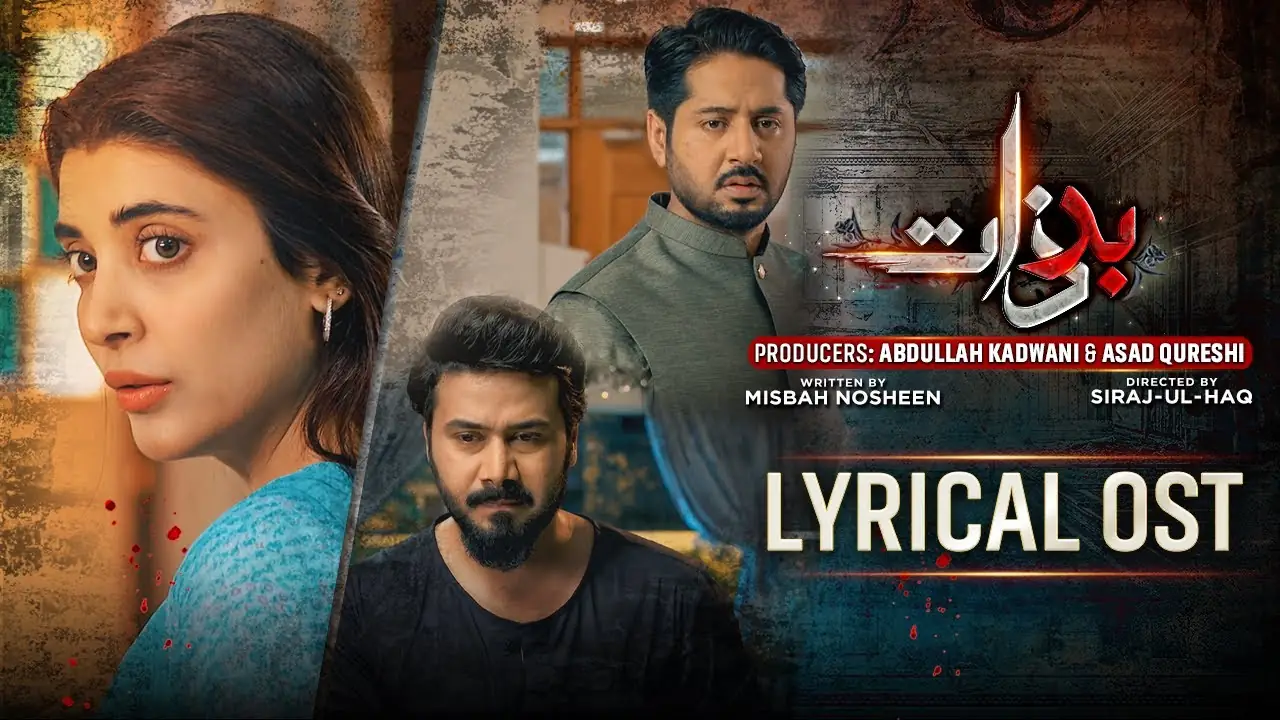
Plot Summary
The Badzaat Drama Review cannot be complete without a detailed look at the plot, because it is the storyline that keeps viewers glued to their screens week after week. Badzaat unfolds as a layered tale of love, betrayal, honor, and the pain of being judged for circumstances beyond one’s control. The drama revolves around central characters whose lives intersect in ways that reveal the best and worst of human emotions.
At the heart of the plot is Wali, a man born into a society that never lets him forget his mother’s past. Despite being honorable and kind-hearted, he is constantly labeled badzaat — someone of low character. This stigma follows him throughout his life, creating inner turmoil and shaping his relationships. The Badzaat Drama Review emphasizes how the storyline powerfully shows the struggles of people who are judged not for their actions but for their family backgrounds.
The drama begins by setting up Wali’s world. He is strong and independent but carries deep emotional wounds because of societal judgment. His relationship with his mother is complicated, filled with love but also resentment for the way her past affects his present. This complex dynamic creates a foundation for the drama’s emotional intensity. The Badzaat Drama Review highlights that this conflict is one of the strongest driving forces of the story.
Parallel to Wali’s journey is Anabiya’s story, the female protagonist who enters his life in unexpected ways. Anabiya is a woman struggling with her own challenges, caught between family expectations and her personal dreams. When her path collides with Wali’s, it sparks a relationship that becomes central to the drama. However, their love story is not simple — it is tested repeatedly by betrayals, misunderstandings, and the constant interference of others. According to the Badzaat Drama Review, this romantic angle provided both tenderness and heartbreak, keeping audiences emotionally invested.
One of the defining aspects of the plot is the presence of betrayal. Characters who appear trustworthy at first often reveal hidden motives later. Friends become enemies, and family members act selfishly, further complicating the lives of Wali and Anabiya. The Badzaat Drama Review notes that these betrayals were not just added for shock value but were written in a way that felt realistic, reflecting the way human relationships often crumble under pressure.
Another central thread in the plot is loyalty. Despite the betrayals and challenges, Wali shows loyalty to those he loves. Even when society rejects him, he continues to stand by his principles. This unwavering strength becomes one of the reasons audiences connected so deeply with his character. In fact, the Badzaat Drama Review repeatedly mentions that Wali’s resilience was one of the most inspiring parts of the story.
As the plot progresses, several twists keep the viewers hooked. Unexpected revelations about family secrets, hidden betrayals, and shocking confrontations add layers of suspense. Each episode ends with just enough tension to leave the audience waiting eagerly for the next installment. The Badzaat Drama Review points out that this pacing was one of the drama’s strongest elements, as it never allowed the storyline to feel stagnant or predictable.
The climax of the drama builds up to an emotional peak where Wali’s struggle for dignity and Anabiya’s quest for peace reach their most intense points. The decisions made by the characters in the final episodes determine their fates, delivering both heartbreak and resolution. Without revealing every detail for those who still wish to watch, the Badzaat Drama Review confirms that the ending was both impactful and thought-provoking, leaving viewers with lingering emotions long after the last episode aired.
What makes the plot of Badzaat stand out is its focus on societal issues. Unlike many dramas that center only on romance, this one delves deeper into how society’s judgments can destroy lives. By labeling someone as badzaat, communities often ignore their true character, reducing them to unfair stereotypes. This message is what gave the plot weight and relevance. According to the Badzaat Drama Review, this blend of personal drama and social commentary is what made the serial resonate strongly with viewers.
The plot also weaves in themes of justice and greed. Certain characters represent selfishness and hunger for power, while others stand for fairness and truth. This constant clash between right and wrong creates moral tension throughout the drama. The Badzaat Drama Review explains that these themes gave the plot more depth, turning it into more than just a love story.
In conclusion, the plot summary of Badzaat shows that this drama was carefully crafted to combine romance, betrayal, family dynamics, and social criticism. Its multi-layered story kept viewers engaged while also forcing them to think about larger issues within society. The Badzaat Drama Review highlights how the plot successfully balanced emotional storytelling with powerful life lessons, making it a drama worth remembering and revisiting.
Character Analysis
A meaningful Badzaat Drama Review cannot be complete without analyzing its characters in detail. While the storyline drives the drama forward, it is ultimately the characters and their complexities that keep viewers emotionally invested. Badzaat stands out because it presents individuals with flaws, virtues, contradictions, and emotional baggage, making them feel real instead of one-dimensional. Every character adds depth to the drama, and together they create a web of emotions that reflect larger societal themes.
Wali (The Protagonist)
At the center of the drama is Wali, the male protagonist. His character is the most layered and emotionally complex. Born under a shadow of stigma, Wali constantly fights against the judgment of society. Despite his efforts to live with dignity, people label him badzaat because of his mother’s past. This unfair treatment makes him defensive and, at times, aggressive. Yet beneath the anger lies a man filled with loyalty, compassion, and strength. The Badzaat Drama Review often highlights Wali as the heart of the story because his journey symbolizes resilience against social prejudice.
What makes Wali’s character stand out is the balance between vulnerability and power. He is not shown as a flawless hero; instead, he is deeply human, making mistakes but also striving to protect those he loves. His loyalty, particularly towards his family and loved ones, is one of his defining traits. In many ways, Wali represents the struggle of countless individuals who are judged for circumstances beyond their control.
Anabiya (The Female Lead)
Anabiya, the female lead, brings a different kind of strength to the story. Unlike Wali, she is not weighed down by societal labels, but she faces her own struggles within family and relationships. She represents a voice of compassion and balance, often acting as a bridge between love and conflict. Her bond with Wali is central to the drama, but it is far from smooth. Their love story faces betrayal, misunderstandings, and family pressures.
In the Badzaat Drama Review, Anabiya’s character is praised for being realistic. She is not portrayed as a passive victim; instead, she shows resilience and independence. Her choices, struggles, and emotional depth make her relatable to viewers, especially women who face similar conflicts in balancing love, loyalty, and family obligations.
Supporting Characters
While Wali and Anabiya dominate the spotlight, the supporting characters play a crucial role in shaping the narrative. Family members, friends, and rivals all contribute to the tension and emotional stakes. Some represent loyalty and truth, while others symbolize greed, betrayal, and selfishness.
For example, certain family members consistently remind Wali of his mother’s past, deepening his pain and isolation. Others provide support, proving that even in a judgmental society, empathy and love exist. The Badzaat Drama Review notes that these supporting characters were not filler roles but carefully written to reflect the complexities of human relationships.
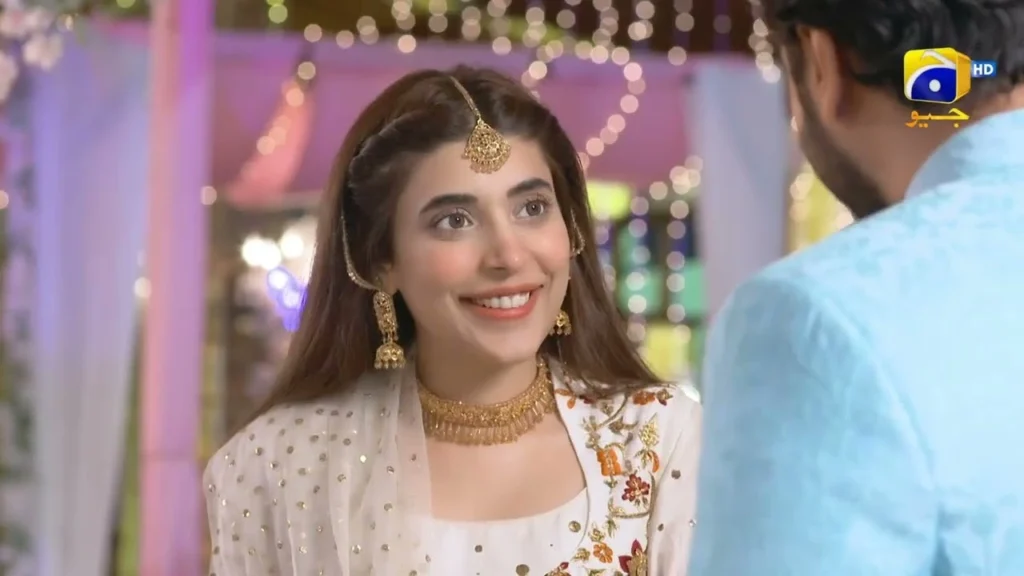
Antagonists and Betrayals
Every strong drama needs conflict, and Badzaat delivers this through its antagonists. These are the characters who manipulate, betray, or act out of greed, driving much of the tension in the plot. Their actions create obstacles for Wali and Anabiya, adding layers of suspense and heartbreak.
In the Badzaat Drama Review, critics often emphasize that the antagonists were effective because they were not cartoonish villains. Instead, they felt like real people driven by selfishness, insecurity, or jealousy. This realism made their betrayals even more painful to watch and added emotional weight to the story.
Character Chemistry and Dynamics
One of the highlights of the drama is the chemistry between the characters. Whether it’s the strained bond between Wali and his mother, the tender yet complicated love between Wali and Anabiya, or the manipulative behavior of antagonists, every relationship feels layered and believable. The interactions are not forced but grow naturally, making the viewers deeply invested in their outcomes. According to the Badzaat Drama Review, this strong character chemistry was one of the reasons the drama maintained its emotional intensity throughout.
Symbolism in Characters
Another point worth noting in character analysis is the symbolism attached to each major role. Wali symbolizes resilience and the pain of judgment, Anabiya symbolizes compassion and emotional strength, while antagonists symbolize greed, betrayal, and the destructive power of prejudice. This symbolic depth elevated the drama beyond a simple love story, making it a commentary on human behavior and societal flaws.
Performances and Portrayals
Characters are only as strong as the actors who portray them, and in Badzaat, the cast delivered commendable performances. The actor playing Wali brought intensity and raw emotion, making his struggles feel authentic. Anabiya’s actress portrayed vulnerability and strength in equal measure, while the supporting cast gave weight to their roles without overshadowing the leads. The Badzaat Drama Review appreciates these performances for making the characters memorable and believable.
Conclusion of Character Analysis
In conclusion, the character analysis shows that Badzaat succeeded in creating individuals who were complex, relatable, and emotionally compelling. Wali and Anabiya, supported by a rich cast of secondary characters and antagonists, carried the weight of a story that reflected society’s prejudices and the strength needed to rise above them. The Badzaat Drama Review ultimately demonstrates that it was the depth of these characters and the performances behind them that turned the drama into a memorable experience for viewers
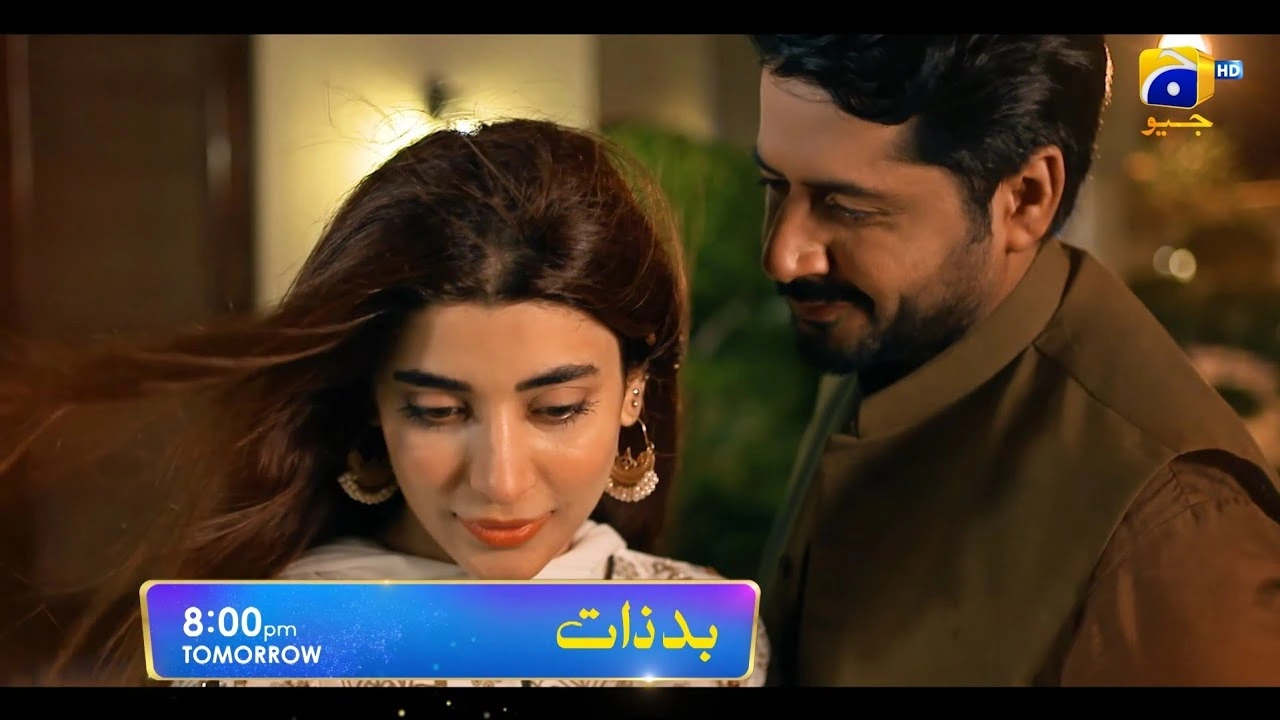
Badzaat Drama Info | OST Credits
A detailed Badzaat Drama Review must also cover the essential information about the drama itself — including its writer, director, production house, airing channel, and OST details. This not only helps fans know the background but also highlights the creative minds who worked behind the scenes.
Pakistani dramas often succeed not just because of their plot and characters but because of the perfect combination of storytelling, acting, music, and direction. In the case of Badzaat, all these elements came together to create an unforgettable viewing experience.
Drama Info Table
| Category | Details |
|---|---|
| Drama Name | Badzaat |
| Genre | Romantic, Social, Family Drama |
| Writer | Misbah Nosheen |
| Director | Siraj ul Haq |
| Producer | Abdullah Kadwani & Asad Qureshi |
| Production House | 7th Sky Entertainment |
| Channel | Geo Entertainment |
| Total Episodes | 30+ Episodes (Approx.) |
| Release Year | 2022 |
| Country | Pakistan |
| Language | Urdu |
OST Credits Table
| Category | Details |
|---|---|
| OST Title | Badzaat (Original Soundtrack) |
| Singer | Ali Zafar |
| Lyricist | Sabir Zafar |
| Composer | Naveed Nashad |
| Music Label | Geo TV Official / 7th Sky Entertainment |
| OST Release | 2022 (with the drama premiere) |
Why Drama Info Matters in a Badzaat Drama Review
When writing a Badzaat Drama Review, including drama information helps viewers connect the story with the creative vision behind it. The name of the writer, Misbah Nosheen, is already associated with several successful projects, which raised audience expectations from the start. The director, Siraj ul Haq, has a reputation for emotionally intense direction, ensuring that each scene carried weight and impact. Knowing these details allows the audience to understand why the drama maintained such high quality in storytelling and presentation.
The role of 7th Sky Entertainment also cannot be overlooked. Known for producing some of the biggest hits in Pakistan, the production house provided all the resources needed to make Badzaat successful. Their combination of experienced direction, careful casting, and top-notch technical support ensured that the drama did not lose momentum during its run. The Badzaat Drama Review highlights how this production strength contributed to the overall success of the drama.
The OST and Its Importance in Badzaat Drama Review
One of the most striking elements of Badzaat was its OST, sung by the popular and versatile Ali Zafar. His soulful voice gave life to the lyrics written by Sabir Zafar, while Naveed Nashad’s composition ensured that the music stayed in the hearts of listeners. In fact, the OST became an anthem for fans of the drama, often shared on social media, quoted in captions, and replayed on YouTube millions of times.
The Badzaat Drama Review often points out that the OST was more than just background music — it was the emotional heartbeat of the story. Every time the soundtrack played during intense moments, it heightened the audience’s feelings and connected them even more deeply to the characters. A drama’s OST can sometimes outshine the series itself, but in the case of Badzaat, it complemented the story perfectly.
How the Info and OST Reflect the Drama’s Themes
Both the drama information and OST details reflect the themes of the story. The writer’s choice of subject matter, the director’s vision, and the producers’ commitment to quality all demonstrate how seriously the team took the project. Similarly, the OST lyrics and melody mirrored the pain, love, betrayal, and resilience shown in the plot. According to the Badzaat Drama Review, this harmony between story and soundtrack played a vital role in making Badzaat memorable.
Audience Connection Through Drama Info
Fans also love to know drama details like episode count, cast list, and release timeline. This information not only feeds curiosity but also helps them compare it with other dramas airing at the same time. When viewers search for Badzaat Drama Review, they often want a complete guide — from plot analysis to OST credits. By providing this information, the review becomes more valuable and user-friendly.
Conclusion of Info & OST Section
In conclusion, the drama info and OST details are essential parts of a comprehensive Badzaat Drama Review. They highlight the talented individuals who created the project, the platform that aired it, and the soundtrack that emotionally connected the audience with the storyline. Without this information, the review would feel incomplete, because a drama’s identity is shaped not only by its plot and characters but also by its creative team and music. Badzaat excelled in all these areas, making it one of the most impactful Pakistani dramas of its time.
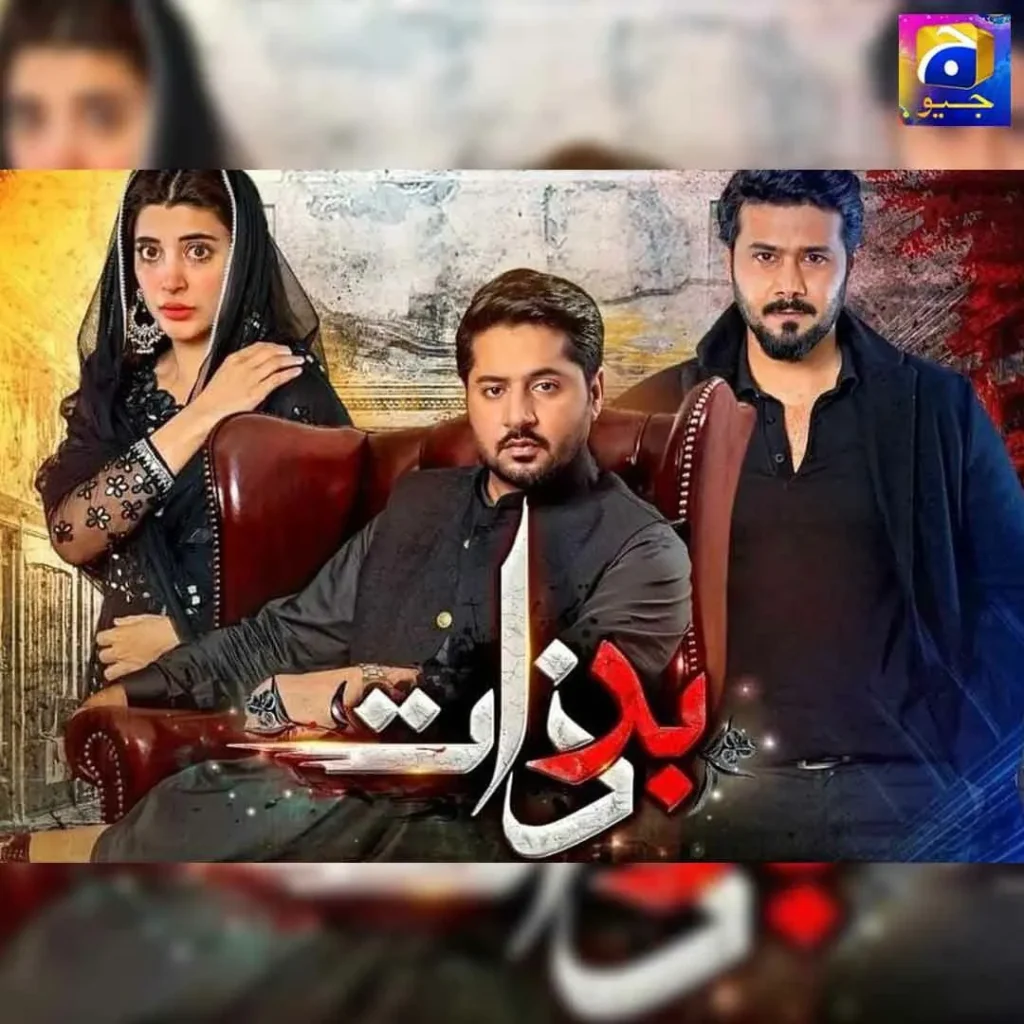
Cast Name and Role
No Badzaat Drama Review would be complete without a deep dive into the cast, since it is the actors who bring the written characters to life. A strong story can fall flat without convincing performances, but in Badzaat, the casting choices were excellent. Each actor suited their role, embodying both the physical presence and the emotional intensity needed for their character. The cast delivered with passion, which is why the drama became memorable and emotionally gripping for audiences.
Cast List with Roles
| Actor/Actress | Role Name | Description |
|---|---|---|
| Imran Ashraf | Wali Asfandali | The central protagonist, a man struggling against the label of Badzaat. |
| Urwa Hocane | Anabiya | The female lead, caught between love, loyalty, and family struggles. |
| Ali Abbas | Daniyal | A key supporting role, representing jealousy, betrayal, and hidden motives. |
| Saba Faisal | Laila Begum | A strong family figure whose presence shapes the narrative. |
| Zainab Qayyum (ZQ) | Narmeen | Another powerful character influencing family dynamics. |
| Nida Mumtaz | Mehrun Nisa | Plays a role tied to Wali’s complicated family past. |
| Sidra Niazi | Huda | Supporting role with emotional connections to the leads. |
| Shehzad Mukhtar | Malik Zada | A character reflecting greed and power struggles. |
| Other Supporting Cast | Various | Friends, family members, and side roles that add layers to the story. |
Imran Ashraf as Wali
Imran Ashraf’s portrayal of Wali is the backbone of the drama. Known for his ability to sink into any character, Imran once again proved his versatility. In Badzaat, he played a man judged not for his deeds but for his mother’s past. His body language, expressions, and raw intensity brought Wali’s pain to life. The Badzaat Drama Review often highlights that Imran Ashraf carried the emotional weight of the drama on his shoulders. His performance ensured that viewers could feel Wali’s internal battle — torn between anger, dignity, and loyalty.
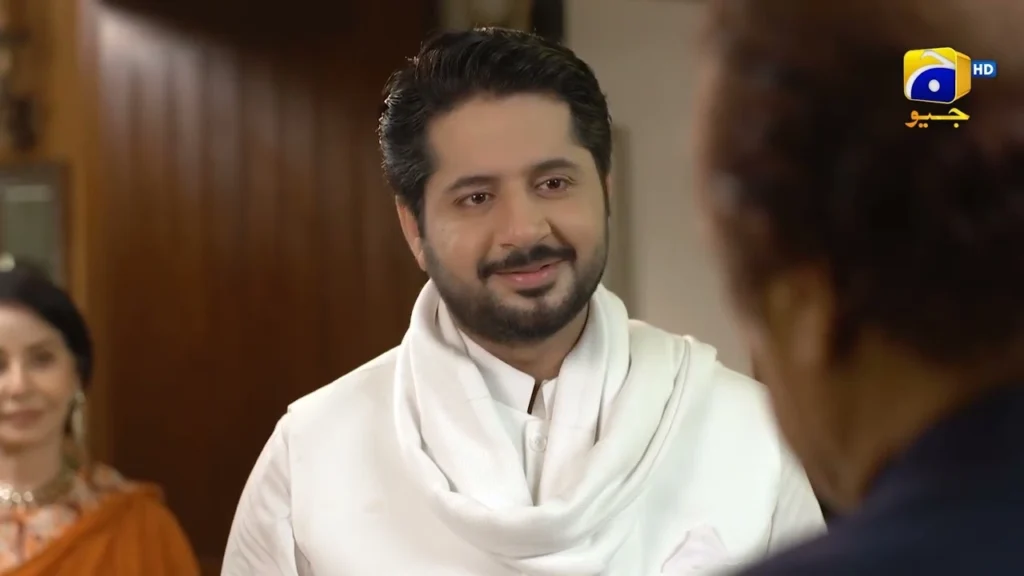
Urwa Hocane as Anabiya
Urwa Hocane played Anabiya, the female lead whose life intertwines with Wali’s in both tender and turbulent ways. She portrayed strength, vulnerability, and compassion, making Anabiya relatable for many viewers. Her chemistry with Imran Ashraf was natural, enhancing the emotional depth of their love story. In the Badzaat Drama Review, Urwa is often praised for balancing softness with determination, showing that Anabiya was not a passive character but someone with her own agency and struggles.
Ali Abbas as Daniyal
Ali Abbas took on the role of Daniyal, a character whose presence added conflict and betrayal to the storyline. His performance made Daniyal’s jealousy and manipulative nature believable without overacting. In fact, Daniyal symbolized the darker side of human behavior — greed, insecurity, and betrayal. The Badzaat Drama Review points out that Ali Abbas gave depth to the antagonist role, making the audience both dislike and understand him at the same time.
Saba Faisal as Laila Begum
Saba Faisal is a powerhouse performer, and in Badzaat, she once again delivered a commanding role. As Laila Begum, she embodied the voice of family honor, societal judgment, and authority. Her strong screen presence ensured that every scene she appeared in carried weight. The Badzaat Drama Review acknowledges her as one of the drama’s anchors, adding maturity and gravitas to the story.
Zainab Qayyum (ZQ) as Narmeen
ZQ’s portrayal of Narmeen added another layer to the family dynamics of the drama. Known for her elegance and strong acting skills, she represented the struggles of women caught between tradition and personal desires. The Badzaat Drama Review mentions that ZQ’s nuanced performance elevated even the supporting storylines, ensuring that the narrative remained engaging beyond just the leads.
Nida Mumtaz as Mehrun Nisa
Nida Mumtaz played Mehrun Nisa, a role tied to Wali’s family background and his painful journey. She brought warmth and emotional strength to her character, showing the struggles of women in difficult family circumstances. The Badzaat Drama Review highlights her performance as one that quietly but effectively supported the drama’s emotional core.
Sidra Niazi as Huda
Sidra Niazi’s role as Huda was smaller compared to the leads but still impactful. Her presence added emotional complexity and served as a bridge in certain family situations. In the Badzaat Drama Review, Sidra is appreciated for bringing sincerity to her role without overshadowing the main story.
Shehzad Mukhtar as Malik Zada
Shehzad Mukhtar played Malik Zada, a character symbolizing greed and power hunger. His performance effectively portrayed the destructive nature of arrogance and ambition. According to the Badzaat Drama Review, Malik Zada represented the external pressures that intensified Wali’s struggles, adding tension and conflict to the drama.
Supporting Cast
The remaining supporting cast, from friends to extended family members, all contributed to making the story multi-dimensional. No role felt unnecessary, and every performance added value. The Badzaat Drama Review praises the team effort, where even minor characters left an impression on viewers.
Conclusion of Cast and Roles
In conclusion, the casting of Badzaat was one of its strongest aspects. Imran Ashraf and Urwa Hocane delivered standout performances as leads, while Ali Abbas, Saba Faisal, ZQ, and others enriched the drama with powerful portrayals. The supporting cast ensured that no scene felt empty, making the story immersive and believable. The Badzaat Drama Review ultimately confirms that the drama succeeded not just because of its writing and direction but because of the incredible performances of its talented cast.
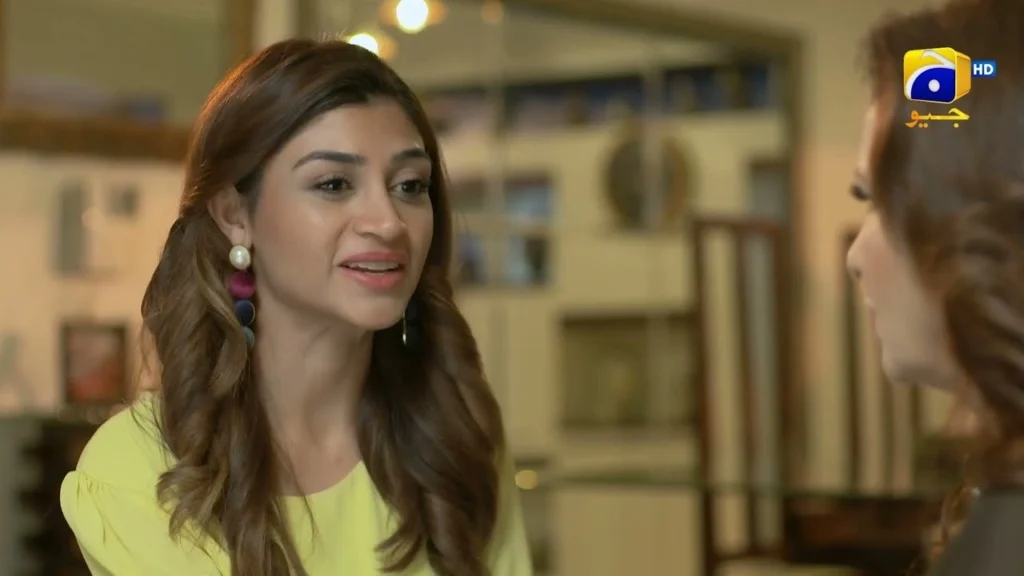
Themes and Messages
A powerful Badzaat Drama Review must go beyond just the plot and characters; it must also highlight the deeper themes and messages that the drama conveys. Pakistani dramas are known for embedding moral and social lessons into their stories, and Badzaat stands out because it directly challenges the stereotypes and prejudices that exist within society. Instead of being just a romance or a family drama, Badzaat becomes a mirror, reflecting the harsh realities of how people are judged by their backgrounds rather than their actions.
Judgment and Prejudice
At the heart of Badzaat lies the theme of prejudice. Wali, the protagonist, is labeled badzaat (of low character) not because of anything he has done but because of his mother’s past. This single label shapes his life, affecting how people treat him and how he views himself. The Badzaat Drama Review highlights how this theme resonates with many viewers, as it reflects real-life situations where people are unfairly judged due to family reputation, class, or circumstances beyond their control. The drama urges viewers to question this unfair mindset and recognize the harm it causes.
Love and Loyalty
Another central theme is love, not only romantic love but also familial loyalty and emotional bonds. Wali’s relationship with Anabiya is tender yet turbulent, reflecting how love can both heal and wound. Their connection shows that loyalty is tested when external forces — such as betrayal and societal pressure — intervene. In the Badzaat Drama Review, this theme is praised for its emotional depth, as it shows love not as an ideal fantasy but as something that requires strength, sacrifice, and trust.
Betrayal and Trust
Betrayal plays a significant role in the story, especially through characters who appear loyal but later reveal hidden motives. These betrayals add to the drama’s suspense and emotional weight. The Badzaat Drama Review explains that betrayal was not used just as a plot twist but as a lesson about human nature. It teaches that trust is fragile and can be broken easily, but rebuilding it requires strength and forgiveness.
Family Honor and Social Stigma
Pakistani dramas often explore the concept of family honor, and Badzaat does this with intensity. Wali’s struggles stem from how society views his mother, showing how one person’s past can haunt future generations. The drama sheds light on the toxic obsession with family honor, asking whether it is fair to sacrifice individuals’ happiness for the sake of societal expectations. According to the Badzaat Drama Review, this theme makes the drama socially relevant, as it reflects ongoing cultural issues.
Justice and Morality
Throughout the drama, questions of justice and morality arise. Is it just to label someone badzaat? Is it moral to betray loved ones for personal gain? The storyline forces viewers to reflect on their own beliefs about fairness and compassion. The Badzaat Drama Review highlights how the drama uses these moral dilemmas to engage audiences not just emotionally but intellectually. It shows that justice is not always served in straightforward ways, but characters who remain true to their principles ultimately earn respect.
Greed and Its Consequences
Several antagonists in the drama represent greed and selfishness. Their hunger for power, wealth, or control drives much of the conflict. However, the drama also shows the destructive consequences of greed — broken families, ruined relationships, and emotional devastation. The Badzaat Drama Review points out that this theme teaches an important lesson: no matter how much one gains through selfishness, the ultimate price is often too high.
Strength and Resilience
Despite all the betrayal, prejudice, and pain, Badzaat also carries a message of resilience. Wali’s ability to survive societal judgment and remain loyal to his principles demonstrates inner strength. Similarly, Anabiya’s courage to navigate family pressures shows resilience in the face of hardship. In the Badzaat Drama Review, this message of strength inspires audiences, reminding them that even in the darkest times, endurance and dignity matter.
Reflection of Society
One of the strongest points of the drama is how it holds a mirror to society. Many viewers saw parts of their own lives, families, or communities reflected in the story. By tackling issues like social labeling, family honor, betrayal, and greed, the drama forces audiences to question their own biases. The Badzaat Drama Review explains that this reflection is what made the serial so impactful — it wasn’t just entertainment, it was a lesson in empathy and self-awareness.
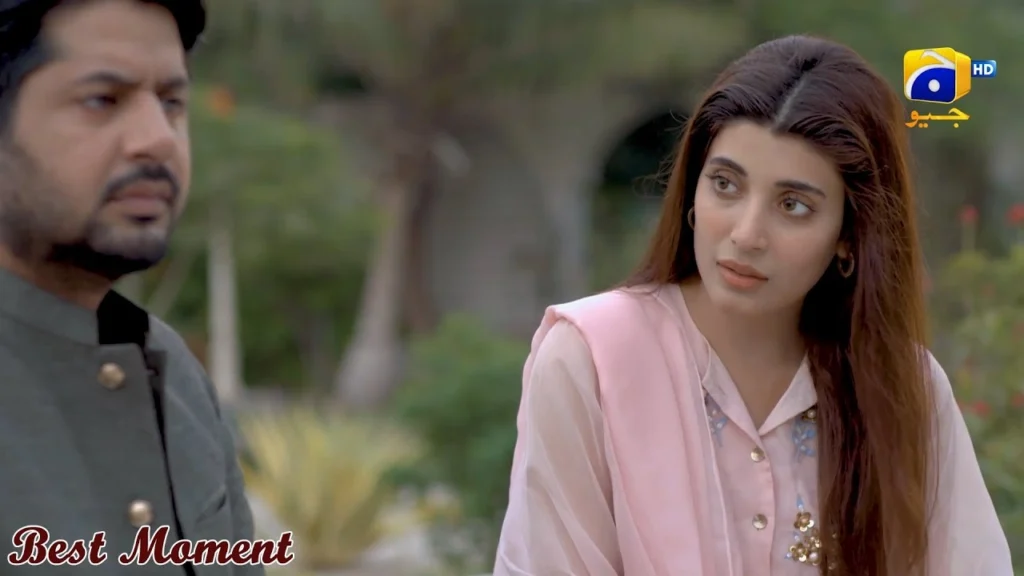
Conclusion of Themes and Messages
In conclusion, Badzaat is not just a drama but a commentary on human behavior and social structures. Its themes of prejudice, loyalty, betrayal, justice, greed, and resilience make it both emotionally gripping and thought-provoking. The Badzaat Drama Review highlights that these messages are what give the drama lasting value, making it more than just another TV serial. By blending powerful storytelling with important social lessons, Badzaat remains a drama that resonates deeply with audiences long after its final episode.
Loyalty
When we talk about loyalty in Pakistani dramas, few stories capture it as powerfully as Badzaat. The entire narrative rests on the question of who remains loyal in times of difficulty and who betrays for personal gain. In every Badzaat Drama Review, the theme of loyalty emerges as a central thread, shaping relationships, conflicts, and the emotional heart of the drama. Loyalty is not presented as a simple concept; instead, it is tested, questioned, and often stretched to its limits.
Wali’s Loyalty to His Principles
The lead character, Wali, is a prime example of loyalty to one’s values. Despite being branded badzaat by society, he never abandons his principles. He stands firmly against injustice, even when it costs him relationships or peace of mind. The Badzaat Drama Review highlights how Wali’s loyalty to himself makes him both admirable and tragic — he refuses to bend to societal pressures, which earns him respect but also isolates him. His unwavering character becomes a reminder that true loyalty starts with remaining honest to oneself.
Romantic Loyalty Between Wali and Anabiya
The relationship between Wali and Anabiya forms the emotional core of Badzaat. Their bond is repeatedly tested by misunderstandings, external manipulation, and social stigma. Yet, what makes their story powerful is how loyalty plays a decisive role in keeping them together. In the Badzaat Drama Review, this aspect is praised because it portrays loyalty in love not as blind devotion but as trust and patience. Anabiya, despite being pressured by her surroundings, continues to believe in Wali’s goodness, while Wali never doubts her sincerity. Their love story proves that loyalty is the glue that holds genuine relationships together.
Family Loyalty and Its Conflicts
Family loyalty is another recurring theme in Badzaat. Wali’s difficult relationship with his mother and other family members reflects the complexity of familial bonds. On one hand, he feels abandoned and betrayed; on the other hand, he continues to protect the family’s honor, even when they fail to defend him. The Badzaat Drama Review explains that this contradiction reflects real life, where family loyalty is often complicated. Sometimes it requires sacrifice, and sometimes it feels undeserved, yet it remains an unbreakable duty in many cultures.
Friendship and Loyalty
The drama also examines friendships and how loyalty within them is tested. Some friends stand by Wali during his toughest moments, while others abandon him when his reputation is attacked. This contrast highlights the fragility of human connections. According to the Badzaat Drama Review, these storylines remind viewers that loyalty in friendship is not about words but actions — staying when it’s inconvenient, supporting when others judge, and believing when the world doubts.

Loyalty Versus Betrayal
One of the most impactful elements of Badzaat is the constant tension between loyalty and betrayal. Characters who seem loyal sometimes reveal selfish motives, while others prove their loyalty through quiet sacrifices. This dynamic creates suspense and emotional depth. The Badzaat Drama Review stresses that without these betrayals, the loyalty of other characters would not shine as brightly. The drama teaches that loyalty is valuable precisely because it is rare and often surrounded by disloyalty.
The Cost of Loyalty
Loyalty in Badzaat often comes at a heavy cost. Wali loses opportunities, relationships, and even peace of mind because he refuses to compromise his values. Anabiya risks her family’s approval by standing by him. These sacrifices make their loyalty meaningful. The Badzaat Drama Review points out that loyalty without sacrifice is hollow; the drama emphasizes that staying true to someone or something often demands courage and resilience.
Symbolism of Loyalty in Society
On a broader level, Badzaat uses loyalty to comment on society itself. When people are quick to judge and abandon others based on labels or gossip, loyalty becomes a revolutionary act. To stand by someone who is socially stigmatized is an act of defiance against cruelty. The Badzaat Drama Review underlines this as one of the most powerful messages: loyalty is not just about personal relationships but about humanity and compassion.
Why Loyalty Resonates with Audiences
Viewers connected strongly with the theme of loyalty because it reflects everyday life. Many people have faced situations where they were abandoned by those they trusted or supported by unexpected allies. The Badzaat Drama Review highlights that this relatability is what made the drama impactful. Loyalty is something everyone craves, and seeing it tested on screen reminded audiences of its importance in their own lives.
Conclusion of Loyalty
In conclusion, loyalty in Badzaat is portrayed in all its complexities — romantic, familial, friendly, and moral. It is not blind devotion but a conscious choice to remain true even when circumstances make it difficult. The Badzaat Drama Review reveals that this theme is one of the reasons why the drama touched so many hearts. By showing loyalty as a rare but invaluable virtue, Badzaat teaches that those who remain loyal, despite the odds, are the ones who leave a lasting impact.
Betrayal
If loyalty is the heart of Badzaat, then betrayal is its shadow. No Badzaat Drama Review can be complete without discussing how betrayal shapes the storyline, characters, and emotional weight of the drama. From family to love, from friendships to societal expectations, betrayal is a recurring wound that drives the narrative forward. It is through betrayal that the drama exposes human weakness, greed, and the fragile nature of trust.
Wali’s Struggle with Betrayal
The protagonist, Wali, experiences betrayal at multiple levels. He is judged and abandoned by society simply because of the stigma attached to his birth. The label badzaat itself is a betrayal of human compassion. Instead of seeing his worth, people choose to define him through prejudice. In the Badzaat Drama Review, this betrayal stands out because it reflects real-life injustice — many individuals face rejection not for their actions but for circumstances beyond their control. Wali’s resilience against such betrayal becomes a major source of his strength.
Family Betrayal
Perhaps the most painful betrayal comes from within Wali’s family. A home, which should provide unconditional support, becomes a place of judgment and misunderstanding. His mother’s coldness and the relatives’ constant criticism create a sense of isolation. The Badzaat Drama Review emphasizes that this betrayal feels most heartbreaking for the audience because family loyalty is expected, yet when it breaks, the pain is unmatched. The drama uses this betrayal to explore how even blood relations can turn fragile when honor and reputation overshadow love.
Betrayal in Love
While loyalty defines Wali and Anabiya’s relationship, betrayal hovers around them in the form of misunderstandings and manipulations by others. Characters try to poison Anabiya’s trust, and at moments, the weight of lies nearly breaks their bond. The Badzaat Drama Review highlights that the threat of betrayal in love makes the story tense and emotionally charged. Love without the risk of betrayal feels shallow, but Badzaat shows that true love must survive these trials.
Friendships Tested by Betrayal
Friendships in Badzaat also face betrayal. Some of Wali’s companions, who once stood by him, distance themselves when society turns against him. This selective loyalty is a form of betrayal that stings deeply. According to the Badzaat Drama Review, these moments reflect real life — friends often vanish when times get tough, leaving betrayal as a bitter reminder of who truly matters.
Betrayal Driven by Greed
One of the recurring messages in Badzaat is how greed fuels betrayal. Several characters compromise relationships, trust, and even morality for personal gain. Whether it’s money, power, or status, greed blinds people and pushes them to stab others in the back. The Badzaat Drama Review notes that these betrayals are not exaggerated but grounded in reality, making the drama relatable for viewers who have witnessed how greed destroys bonds in real life.
The Emotional Impact of Betrayal
Betrayal in Badzaat is not just a plot device; it deeply affects the characters’ psychological states. Wali becomes hardened and distrustful, Anabiya faces heartbreak, and other characters are scarred by deception. The Badzaat Drama Review explains that betrayal is used to show how fragile human emotions can be and how a single act of disloyalty can change the course of someone’s life forever.
Symbolism of Betrayal in Society
The drama also uses betrayal to reflect broader societal issues. When people abandon Wali because of gossip and social pressure, it symbolizes how society often betrays individuals who are different or marginalized. The Badzaat Drama Review interprets this as a critique of cultural hypocrisy — people claim to value loyalty and justice, but when faced with pressure, they betray their own values for convenience.
Contrast Between Loyalty and Betrayal
One of the strengths of Badzaat is how it juxtaposes loyalty and betrayal. Every loyal character is highlighted more strongly because betrayal surrounds them. Anabiya’s loyalty shines against the backdrop of manipulations, and Wali’s honesty becomes more admirable in contrast to others’ deceit. The Badzaat Drama Review underlines that betrayal is not just negativity; it enhances the meaning of loyalty by showing how rare and precious it is.
Why Betrayal Resonates with Viewers
Audiences connected deeply with the theme of betrayal because it reflects experiences many have faced. Whether through failed friendships, broken trust in families, or love betrayed, viewers saw themselves in the characters’ struggles. The Badzaat Drama Review highlights that this emotional realism is why the drama sparked so many conversations. Betrayal is universal, and Badzaat uses it to hold up a mirror to society.
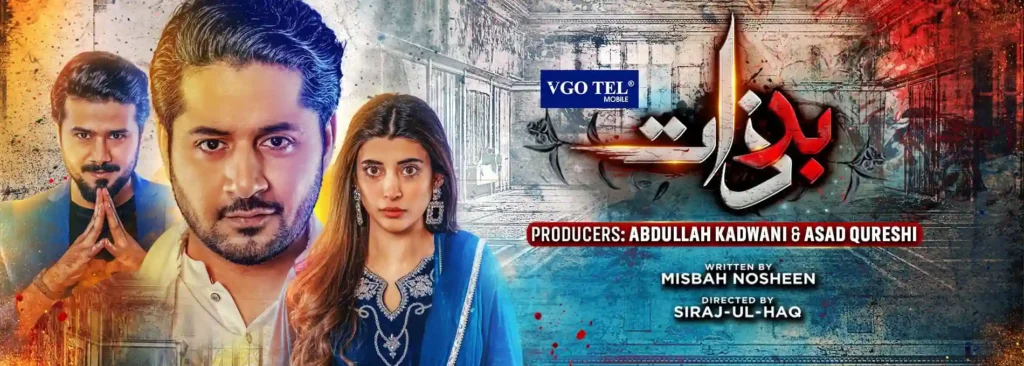
Conclusion of Betrayal
In conclusion, betrayal in Badzaat is not just a storyline tool but the very tension that drives the drama. It shapes Wali’s resilience, tests Anabiya’s love, exposes greedy motives, and critiques societal hypocrisy. The Badzaat Drama Review shows that betrayal, though painful, is essential in revealing the true nature of characters and relationships. Ultimately, Badzaat reminds us that betrayal may break trust, but it also highlights the beauty and power of those rare souls who remain loyal against all odds.
Justice
Justice is one of the central themes of Badzaat, and any Badzaat Drama Review would be incomplete without a close examination of how the drama deals with fairness, accountability, and moral truth. From the very beginning, the story positions justice as something that is often delayed, distorted, or denied, particularly to those who come from marginalized or stigmatized backgrounds. Yet, despite the injustice surrounding him, Wali’s struggle for dignity becomes a symbol of resilience.
Wali’s Fight for Justice
The character of Wali is at the heart of the justice narrative. Born into circumstances beyond his control, he is unfairly branded with the title badzaat — a judgment that denies him the justice every human deserves: the right to be valued for their character rather than their birth. A deep dive into the Badzaat Drama Review reveals that Wali’s journey is less about winning external battles and more about reclaiming his sense of self-worth in a world eager to undermine him. His ability to rise above prejudice serves as a quiet but powerful form of justice.
Family and the Absence of Justice
Justice, ironically, is often absent within Wali’s own family. Instead of standing up for him against societal cruelty, they fall into the same cycle of judgment and rejection. The Badzaat Drama Review highlights that this absence of justice in the home is more painful than the criticism from strangers. Family should be the first place where fairness thrives, but in Wali’s story, it becomes the very institution that denies him compassion. This portrayal reflects how injustice within families can leave lasting scars.
Justice in Love
In romantic relationships, Badzaat also tackles the theme of justice. Wali and Anabiya’s love story faces constant trials — manipulations, misunderstandings, and external pressures. Despite these obstacles, their bond represents justice in its purest form: the right to love without judgment. The Badzaat Drama Review notes that justice in love is not shown as something easily achieved but as a struggle requiring patience, forgiveness, and trust. The drama makes viewers question whether true love can exist in a world where injustice prevails so heavily.
Social Justice and Prejudice
One of the strongest aspects of Badzaat is how it critiques society’s role in perpetuating injustice. Wali is repeatedly wronged not because of his actions but because of the prejudice attached to his identity. The Badzaat Drama Review emphasizes that this reflects a broader social injustice — people are often judged by their background, class, or family rather than their personal merit. Through this lens, the drama exposes the hypocrisy of a culture that values honor but practices discrimination.
Greed and the Denial of Justice
Justice in Badzaat is also compromised by greed. Several characters manipulate situations to protect their own interests, denying justice to others. Lies, betrayals, and selfish decisions are constantly used as weapons to control outcomes. According to the Badzaat Drama Review, these moments are not exaggerated plot twists but believable reflections of how greed can blind people to fairness. Justice becomes secondary when personal gain is at stake, a message that resonates with real-world dynamics.
The Role of Betrayal in Justice
Betrayal and justice are closely tied in the drama. Every betrayal Wali experiences — from family, friends, and society — is also a moment of injustice. Yet, rather than letting betrayal destroy him, Wali transforms it into motivation to seek fairness, not just for himself but for others as well. The Badzaat Drama Review explains that betrayal deepens the audience’s desire for justice, making the eventual resolution more powerful and satisfying.
Justice as a Moral Lesson
Beyond the plot, Badzaat uses justice as a moral lesson for viewers. It asks uncomfortable but necessary questions: What does justice mean in relationships? How do we deny justice to others without even realizing it? And why is fairness often sacrificed for the sake of reputation or greed? The Badzaat Drama Review underlines that these questions make the drama more than entertainment; they make it a reflection of society’s flaws and a call for change.
Cinematic Portrayal of Justice
The theme of justice is also strengthened by the drama’s direction and cinematography. Scenes of Wali standing alone against a crowd, or moments where Anabiya silently endures unfair accusations, are framed to emphasize isolation and injustice. The Badzaat Drama Review points out that this visual storytelling ensures that justice is not only spoken about in dialogue but also felt by the audience through imagery and mood.
Conclusion on Justice
In conclusion, Badzaat presents justice as both an ideal and a struggle. It shows how prejudice, greed, and betrayal can deny people the fairness they deserve, while also highlighting the strength of those who fight for it anyway. The Badzaat Drama Review makes it clear that justice in this drama is not about courtroom victories or dramatic punishments; rather, it is about reclaiming dignity, proving loyalty, and staying true to one’s principles despite the odds. Badzaat reminds us that while injustice is painful, the fight for justice is what defines true strength and character.
Greed and Its Consequences
Greed is a destructive force, and in Badzaat, it drives many of the conflicts that shape the story. Any thorough Badzaat Drama Review must highlight how greed not only poisons relationships but also disrupts the delicate balance between loyalty, justice, and family ties. The drama carefully portrays how the selfish desires of individuals create ripples of pain, mistrust, and betrayal that impact everyone around them.
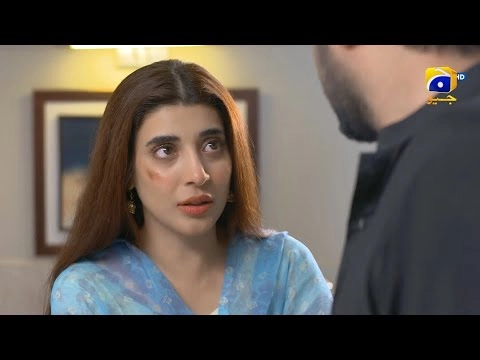
The Nature of Greed in Badzaat
At its core, greed in Badzaat is not just about money or wealth. It extends to power, reputation, control, and even love. The characters who allow greed to guide their choices inevitably face devastating consequences. The Badzaat Drama Review points out that this theme resonates strongly with viewers because it mirrors real life, where unchecked greed often leads to broken families and shattered trust.
Family Greed and Broken Bonds
One of the strongest portrayals of greed is within Wali’s family. Instead of supporting him, some family members are consumed by their own selfish motives. Property disputes, status concerns, and the constant fear of societal judgment push them to act unfairly. In many ways, the Badzaat Drama Review observes that this kind of family greed is even more harmful than material greed because it destroys the foundation of love and unity that a family should represent.
Greed for Status and Reputation
A recurring theme in Badzaat is the obsession with status. Characters who crave social respectability often act unjustly toward Wali because of his background. In their pursuit of maintaining appearances, they sacrifice fairness and compassion. The Badzaat Drama Review emphasizes that this craving for reputation is a subtle form of greed—an endless hunger to be seen as “better” than others. But instead of bringing honor, it often results in humiliation and regret.
Greed in Love and Relationships
Love in Badzaat is also tested by greed. Some characters seek relationships not for genuine affection but for control, validation, or personal gain. This toxic form of desire leads to heartbreak and misunderstandings between couples. According to the Badzaat Drama Review, the way greed manifests in love highlights an important lesson: when relationships are built on selfishness rather than sincerity, they are doomed to collapse.
Consequences of Greed: Betrayal
Greed and betrayal go hand in hand in Badzaat. Characters blinded by their ambitions often betray those closest to them, thinking that short-term gains will secure long-term happiness. However, the Badzaat Drama Review reveals that every act of betrayal caused by greed eventually backfires. Trust is broken, alliances fall apart, and the betrayers find themselves isolated and exposed.
The Emotional Cost of Greed
Perhaps the most painful consequence of greed in Badzaat is the emotional toll it takes on innocent people. Wali, who already suffers from prejudice, is further wounded by the selfish actions of others. Anabiya, too, becomes a victim of manipulations fueled by greed. The Badzaat Drama Review highlights that this emotional suffering is portrayed with raw honesty, making viewers reflect on how their own desires may unintentionally harm others.
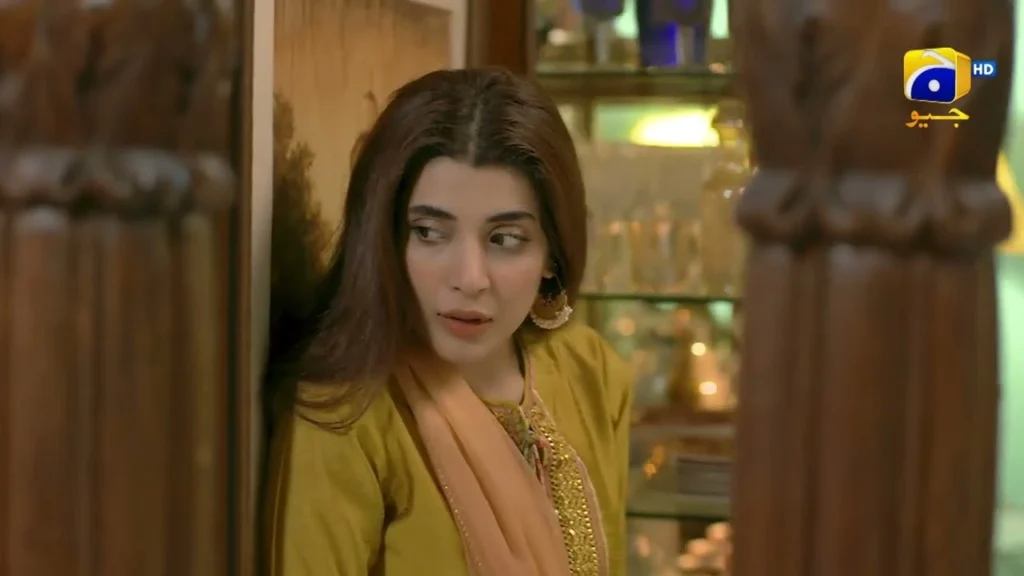
Greed Versus Justice
The tension between greed and justice forms a key part of the storyline. While justice demands fairness, equality, and truth, greed thrives on manipulation, dishonesty, and selfish ambition. The Badzaat Drama Review explains that this clash is not just external but also internal—characters often struggle within themselves, torn between doing what is right and pursuing what benefits them most. This inner conflict adds depth to the narrative.
Greed and Its Role in Plot Twists
Many of the major plot twists in Badzaat are triggered by greed. Shocking betrayals, sudden reversals, and unexpected confrontations all stem from someone’s selfish desire to gain more than they deserve. The Badzaat Drama Review notes that this makes the drama unpredictable yet relatable, since greed-driven twists are not exaggerated fantasy but believable human flaws taken to extremes.
The Moral Lesson on Greed
Ultimately, Badzaat delivers a powerful moral lesson: greed never truly benefits anyone. Those who act selfishly may enjoy temporary victories, but in the long run, they pay a heavy price. Families fall apart, reputations are destroyed, and peace of mind is lost. The Badzaat Drama Review stresses that the drama is not just entertainment—it is a cautionary tale warning viewers about the dangers of allowing greed to dictate their choices.
Conclusion on Greed and Its Consequences
In conclusion, greed in Badzaat is portrayed as a corrosive force that destroys trust, love, and justice. The drama’s realistic treatment of this theme makes it stand out, showing how even small acts of selfishness can escalate into lifelong consequences. The Badzaat Drama Review makes it clear that greed is not only harmful to those who practice it but also to the innocent lives caught in its web. Through its storytelling, Badzaat reminds us that true fulfillment comes not from taking more than we deserve but from embracing fairness, loyalty, and compassion.
Family Dynamics
When analyzing Badzaat, one cannot ignore the crucial role of family relationships in shaping the story. The drama dives deep into how families can either nurture or destroy individuals depending on the values they prioritize. A detailed Badzaat Drama Review highlights that family dynamics are not just a backdrop here but one of the central themes driving the narrative forward. The emotional struggles of the characters are rooted in how they are treated by their families, making this theme highly relatable to audiences.
The Importance of Family in Badzaat
In Pakistani society, family plays a central role in defining one’s identity, reputation, and future opportunities. Badzaat captures this cultural reality with honesty. Wali, the main character, constantly battles the stigma attached to his background because of how society and even parts of his family judge him. The Badzaat Drama Review notes that his struggles are not just personal but also a reflection of how families sometimes fail to provide unconditional support.
Supportive Versus Toxic Family Structures
The drama carefully contrasts supportive family members with toxic ones. Some relatives stand by Wali and Anabiya, offering them strength during difficult times. Others, however, prioritize wealth, property, or social status over emotional bonds. This duality makes the family environment in Badzaat both realistic and complex. As the Badzaat Drama Review explains, these contrasting dynamics illustrate how a family can be both a safe haven and a battlefield.
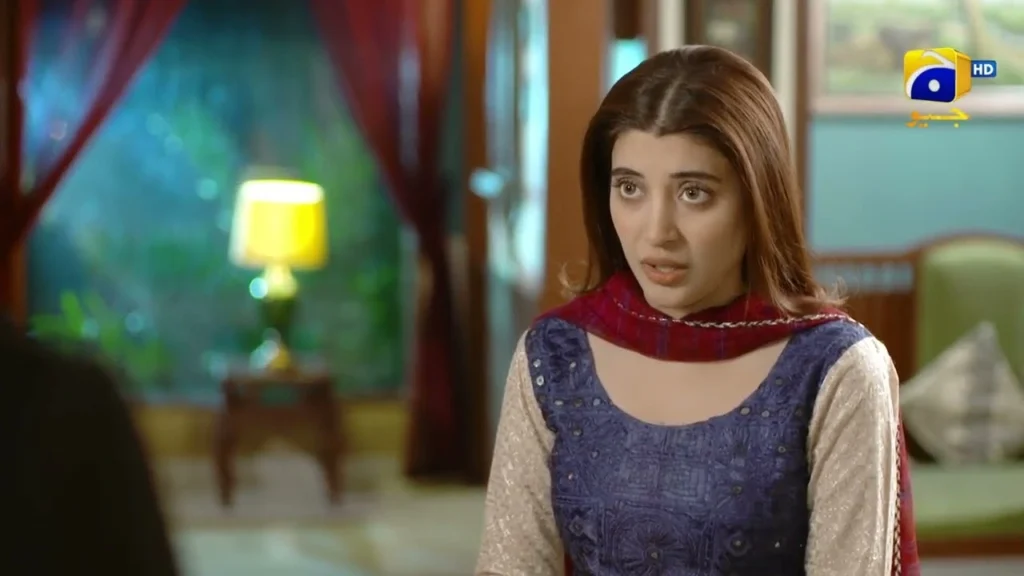
Generational Differences in Attitudes
Another layer of family dynamics in Badzaat is the generational divide. Elders often cling to rigid traditions, valuing societal image over compassion. Younger characters, on the other hand, seek love, justice, and personal happiness. The Badzaat Drama Review observes that this generational clash creates tension, especially when older family members impose outdated norms that stifle the younger ones. This conflict resonates deeply with viewers who face similar struggles in real life.
The Role of Women in Family Structures
Women in Badzaat play pivotal roles in shaping family dynamics. Some act as pillars of strength, holding the household together with patience and wisdom. Others become instigators of conflict, driven by jealousy, insecurity, or greed. According to the Badzaat Drama Review, this dual portrayal highlights how women often bear the heaviest responsibility for maintaining family harmony, while also being vulnerable to manipulation within patriarchal structures.
Family Loyalty Versus Betrayal
One of the most gripping aspects of the drama is how loyalty and betrayal coexist within the same family. While some characters remain fiercely loyal, others betray their own blood for personal gain. This adds layers of suspense and moral questioning. The Badzaat Drama Review points out that such betrayals feel especially painful because they come from the people who are supposed to protect and support you the most.
Wali’s Struggle With Family Acceptance
Wali’s journey is central to understanding family dynamics in Badzaat. Despite his strengths, his background subjects him to constant judgment. Family members often remind him of his origins rather than valuing his character. This lack of acceptance is a recurring wound for him. The Badzaat Drama Review emphasizes that this rejection showcases how damaging it can be when families prioritize status over love.
Marriage and Family Expectations
Marriage is another arena where family dynamics play out strongly. In Badzaat, marriages are not simply unions of two individuals but alliances shaped by family approval, class, and reputation. These external pressures often complicate love stories, making relationships more fragile. The Badzaat Drama Review highlights that these conflicts reflect societal realities, where families sometimes treat marriage as a transaction rather than an emotional bond.
Family Unity Versus Division
The drama also illustrates how families can either thrive through unity or collapse due to internal divisions. Greed, jealousy, and misunderstandings constantly threaten to tear relationships apart. Yet, moments of love, forgiveness, and unity show the possibility of reconciliation. According to the Badzaat Drama Review, this balance between division and unity keeps viewers emotionally invested, as they see glimpses of both hope and despair within the family.
Lessons About Family From Badzaat
Ultimately, Badzaat teaches viewers that family should be a source of strength, not judgment. When family members act with compassion and fairness, they help individuals overcome societal prejudice. When they act with selfishness or cruelty, they leave scars that last a lifetime. The Badzaat Drama Review concludes that the drama encourages viewers to reflect on their own family relationships, emphasizing the importance of empathy, understanding, and unconditional support.
Conclusion on Family Dynamics
In conclusion, family dynamics in Badzaat are both the foundation of the story and the source of its greatest conflicts. By portraying both the supportive and toxic sides of family life, the drama presents a realistic picture of how complicated relationships can be. The Badzaat Drama Review makes it clear that the drama resonates with audiences because it captures the bittersweet truth: family has the power to build us up, but also the power to break us down.
Direction and Cinematography
When it comes to the success of any drama, the direction and cinematography play as much of a role as the script and acting. In the case of Badzaat, the direction and visual presentation have been crafted with precision, making the drama stand out on television screens. A comprehensive Badzaat Drama Review shows how strong directorial choices, coupled with visually appealing cinematography, elevate the storytelling and enhance the emotional impact of each scene.
Directorial Vision and Storytelling
The director of Badzaat approaches the story with a vision that blends realism and emotional intensity. Instead of over-dramatizing every conflict, the direction maintains a balance that makes the situations believable and relatable. According to the Badzaat Drama Review, this grounded style ensures that audiences connect with the characters and their struggles on a deeper level. The focus remains on human emotions rather than unnecessary theatrics, which is a refreshing approach.
Cinematography as a Storytelling Tool
One of the standout features of Badzaat is its cinematography. Every frame is carefully designed to reflect the emotions of the characters and the tone of the scene. Whether it’s a confrontation filled with tension or a quiet moment of reflection, the visuals complement the dialogue and acting. The Badzaat Drama Review emphasizes that the cinematography adds depth to the narrative, making it more engaging and aesthetically pleasing.
Use of Lighting and Shadows
Lighting plays a critical role in Badzaat. For intense and darker scenes, shadows are used effectively to highlight the inner turmoil of characters like Wali. Meanwhile, brighter, softer lighting is used in moments of peace or emotional relief. The Badzaat Drama Review highlights that this contrast in lighting is not just visually appealing but also symbolic, reinforcing the central themes of loyalty, betrayal, and justice.
Camera Angles and Movement
The director employs a variety of camera angles to capture emotions and power dynamics. Close-up shots allow viewers to feel the intensity of Wali’s pain or Anabiya’s vulnerability. Wide shots capture the grandeur of family gatherings or the loneliness of a character standing apart from others. According to the Badzaat Drama Review, the smooth camera movements give the drama a polished, cinematic quality that enhances its appeal.
Symbolism in Visuals
Beyond aesthetics, Badzaat uses visuals as a symbolic tool. For instance, repeated shots of doors closing, staircases, or mirrors subtly reflect the themes of confinement, hierarchy, and self-reflection. These visual cues might go unnoticed by casual viewers, but they add a layer of depth for those who pay attention. The Badzaat Drama Review notes that such symbolism demonstrates the director’s commitment to storytelling beyond the script.
Portrayal of Cultural Settings
Cinematography also plays a key role in highlighting cultural and societal settings. Traditional Pakistani households, lavish drawing rooms, and bustling streets are presented with authenticity. The detailed set design, combined with careful camera work, immerses the audience in the environment. According to the Badzaat Drama Review, these cultural visuals not only ground the story but also make it relatable for viewers who recognize their own society reflected on screen.
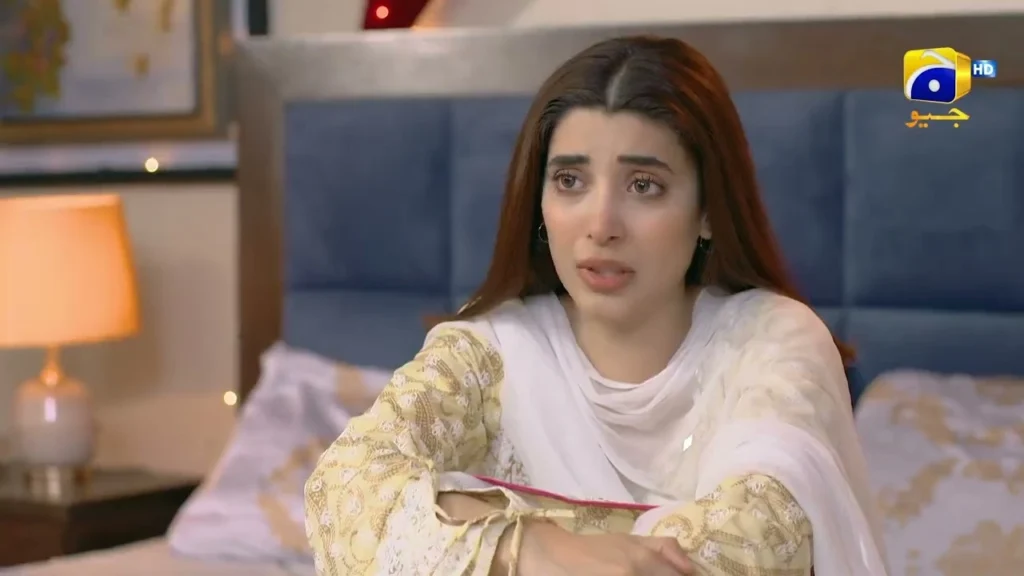
Pacing Through Direction
The pacing of Badzaat is another area where the director shines. While some dramas suffer from dragging storylines or rushed conclusions, Badzaat maintains a steady flow. Emotional peaks and plot twists are strategically placed, ensuring the audience remains engaged. The Badzaat Drama Review points out that the director’s ability to balance suspense and emotional release keeps the drama from becoming monotonous.
Highlighting Performances Through Direction
A strong director knows how to get the best out of their actors, and in Badzaat, this is evident. Each performance feels natural and convincing, particularly from the lead cast. Wali’s intense expressions, Anabiya’s innocence, and the supporting characters’ complexities are all amplified through thoughtful direction. As emphasized in the Badzaat Drama Review, the director doesn’t overshadow the actors with flashy techniques but rather uses subtle guidance to let performances shine.
Cinematic Appeal Compared to Other Dramas
When compared to other Pakistani dramas airing around the same time, Badzaat stands out for its cinematic look. Many local dramas focus heavily on dialogues and neglect the visual element. However, Badzaat successfully integrates both, offering an experience that feels closer to a feature film than a typical serial. The Badzaat Drama Review suggests that this visual richness is one reason behind the drama’s popularity with viewers who value aesthetics as much as storylines.
Conclusion on Direction and Cinematography
In conclusion, the direction and cinematography of Badzaat play a defining role in its success. Through balanced storytelling, powerful visuals, symbolic cues, and effective pacing, the drama becomes more than just a scripted tale—it transforms into an immersive experience. The Badzaat Drama Review makes it clear that without its strong directorial vision and polished cinematography, the drama would not have achieved the same emotional and visual impact. Ultimately, these elements prove that Badzaat is not just about what is said but also about how it is shown.
Pacing and Plot Twists
When analyzing the success of any drama, the pacing and incorporation of plot twists are critical in keeping the audience hooked. Badzaat is a prime example of how thoughtful pacing and unexpected twists can elevate a story from predictable melodrama to a gripping narrative. A detailed Badzaat Drama Review shows that the drama thrives on its ability to maintain suspense while ensuring that the storyline unfolds at a steady and engaging rhythm.
Importance of Pacing in Storytelling
The pacing in Badzaat is carefully managed to avoid the common pitfall of dragging episodes. Many Pakistani dramas stretch simple conflicts across multiple episodes, frustrating the audience. However, Badzaat balances this by allowing key moments to breathe while moving the story forward with purpose. According to the Badzaat Drama Review, the rhythm of the drama ensures that viewers never feel bored, and each episode delivers something meaningful to keep them invested.
Early Setup and Gradual Build-Up
From the very first episodes, Badzaat sets up its central conflicts in a way that sparks curiosity. Wali’s emotional struggles, family disputes, and themes of betrayal are introduced early, giving the audience a sense of what lies ahead. Instead of rushing to dramatic revelations, the story builds tension gradually. The Badzaat Drama Review highlights that this slow but deliberate build-up adds to the drama’s emotional intensity and keeps audiences guessing about the eventual outcomes.
Strategic Use of Plot Twists
One of the strongest elements in Badzaat is the clever use of plot twists. Just when viewers feel they understand the direction of the story, a shocking revelation shifts the narrative. Whether it is the unveiling of hidden motives, betrayals within the family, or sudden turns in romantic relationships, these twists prevent the drama from becoming predictable. The Badzaat Drama Review notes that such twists are not forced but flow naturally from the storyline, which makes them even more impactful.
Balancing Suspense and Emotional Depth
The pacing ensures that suspenseful twists don’t overshadow emotional depth. For instance, revelations about betrayals are balanced with quieter scenes where characters reflect on their decisions and relationships. This balance keeps the drama emotionally engaging without overwhelming the audience with nonstop shocks. According to the Badzaat Drama Review, this thoughtful approach is one of the main reasons why Badzaat has managed to sustain its viewership over multiple episodes.
Climactic High Points
Every few episodes, Badzaat delivers a climactic moment that reinvigorates audience interest. These high points often revolve around dramatic confrontations, unexpected betrayals, or sudden shifts in alliances. Such climaxes are placed at just the right moments, ensuring that the story doesn’t stagnate. The Badzaat Drama Review points out that these spikes in tension are perfectly timed to align with the pacing, keeping the viewers emotionally and mentally engaged.
Avoiding Dragged-Out Storylines
One of the most appreciated aspects of Badzaat is its refusal to stretch minor conflicts unnecessarily. While some subplots are introduced, they are resolved without dragging them for weeks. This disciplined storytelling makes each episode feel purposeful. According to the Badzaat Drama Review, this approach differentiates Badzaat from many contemporary dramas that lose audience attention due to repetitive and drawn-out narratives.
Unpredictability as a Strength
Unpredictability is one of Badzaat’s biggest strengths. Even seasoned drama viewers, who are used to guessing plotlines, find themselves surprised by the direction of the story. For example, characters who seem trustworthy may reveal hidden agendas, while those perceived as weak may rise with unexpected resilience. The Badzaat Drama Review emphasizes that this unpredictability is not only entertaining but also reflects the complexities of real human behavior.
Emotional Rollercoaster Through Pacing
The pacing also contributes to the emotional rollercoaster that Badzaat offers. Intense confrontations are followed by calmer, reflective moments, giving viewers time to absorb the drama’s emotional weight. This rhythm ensures that the audience doesn’t feel emotionally exhausted, but rather remains eager for the next episode. The Badzaat Drama Review highlights that this thoughtful pacing is a hallmark of skilled storytelling.
Integration of Themes Through Twists
Each plot twist also ties back to the larger themes of the drama—loyalty, betrayal, justice, and family dynamics. Instead of being random shocks, the twists carry meaning and deepen the exploration of these themes. For example, betrayals often test family loyalty, while sudden conflicts force characters to confront their sense of justice. The Badzaat Drama Review makes it clear that these twists are not just for entertainment but also for reinforcing the drama’s core messages.
Conclusion on Pacing and Plot Twists
In conclusion, the pacing and plot twists of Badzaat are vital components of its success. The story flows with a steady rhythm, avoiding monotony while strategically inserting climactic surprises that keep audiences on the edge of their seats. The Badzaat Drama Review emphasizes that the drama’s ability to balance suspense, emotional depth, and thematic relevance through pacing and twists sets it apart from typical serials. Ultimately, this element of storytelling ensures that Badzaat remains memorable long after the final episode.
Strengths and Weaknesses
Every drama has its highlights and shortcomings, and Badzaat is no different. While it has gained immense popularity for its engaging storyline, strong performances, and thought-provoking themes, there are also areas where the drama could have been improved. A detailed Badzaat Drama Review makes it clear that the balance of strengths and weaknesses is what defines its overall impact on audiences.
Strengths of Badzaat
1. Strong Storyline with Emotional Depth
One of the greatest strengths highlighted in the Badzaat Drama Review is its compelling storyline. Unlike many typical serials that rely solely on predictable tropes, Badzaat weaves together themes of love, betrayal, justice, and family dynamics in a meaningful way. The emotional depth of the characters ensures that audiences can relate to their struggles and victories.
2. Powerful Performances by the Cast
The acting performances are another standout feature. Imran Ashraf as Wali delivers a heartfelt portrayal that captures both vulnerability and strength. Similarly, Urwa Hocane and other cast members bring authenticity to their roles, making the characters feel real rather than exaggerated. According to the Badzaat Drama Review, this level of performance elevates the drama and keeps viewers emotionally invested.
3. Well-Timed Plot Twists
As discussed in earlier sections, the drama’s pacing and unexpected twists keep the audience hooked. The Badzaat Drama Review praises how these twists are not only surprising but also tie back to the central themes of loyalty, greed, and justice. This clever use of storytelling ensures that viewers remain excited about each new episode.
4. Exploration of Universal Themes
The drama’s exploration of themes such as loyalty, betrayal, and family conflict resonates with a wide audience. These universal issues are presented in a culturally relevant way, making the story both relatable and impactful. The Badzaat Drama Review emphasizes that this thematic richness is one of the core strengths of the show.
5. Direction and Cinematography
Visually, Badzaat stands out with its polished cinematography and creative direction. The framing, lighting, and attention to detail enhance the storytelling. According to the Badzaat Drama Review, these technical strengths add a cinematic quality that makes the drama more engaging compared to average productions.
Weaknesses of Badzaat
1. Occasional Slow Episodes
While the pacing is generally strong, some episodes feel slower than necessary. Certain subplots linger longer than they should, which slightly disrupts the otherwise smooth flow. The Badzaat Drama Review points out that trimming these slower parts would have made the drama even tighter and more compelling.
2. Repetition of Themes
Although the exploration of loyalty and betrayal is engaging, the drama sometimes repeats these themes in ways that feel redundant. Audiences may find some situations predictable after a while. The Badzaat Drama Review suggests that more variety in conflicts could have added freshness to the narrative.
3. Supporting Characters Underutilized
Another weakness lies in the underutilization of supporting characters. While the main leads are given ample screen time and depth, some side characters don’t receive enough development. This creates moments where their actions feel sudden or underexplained. According to the Badzaat Drama Review, giving more balance to all characters would have enriched the story.
4. Slightly Lengthy Runtime
Like many Pakistani dramas, Badzaat could have benefited from fewer episodes. Some storylines stretch longer than necessary, which may test the patience of certain viewers. The Badzaat Drama Review notes that a more concise format would have made the drama sharper without losing its emotional depth.
5. Predictability in Romantic Subplots
While the overall narrative remains unpredictable, some romantic developments follow conventional patterns. For viewers who are well-versed in drama storylines, these subplots might seem predictable. The Badzaat Drama Review acknowledges that while these parts don’t ruin the experience, they do slightly weaken the originality of the show.
Balancing the Two Sides
Despite these weaknesses, the drama’s strengths outweigh its flaws. The powerful performances, emotionally rich storyline, and visual presentation ensure that Badzaat leaves a lasting impact. The weaknesses, though noticeable, do not overshadow the overall quality of the production. In fact, they serve as reminders of areas where future dramas can improve.
Final Perspective on Strengths and Weaknesses
In summary, Badzaat is a drama that shines in many areas while also facing minor shortcomings. The Badzaat Drama Review concludes that its strengths—especially strong acting, engaging storytelling, and thematic depth—make it stand out in the crowded world of Pakistani dramas. Its weaknesses, such as occasional slow pacing and underdeveloped supporting characters, are present but not deal-breaking. Overall, the balance of strengths and weaknesses makes Badzaat a drama worth watching and remembering.
Audience Reception
When analyzing the success of any drama, audience response becomes the most critical factor. No matter how strong the performances, storyline, or direction may be, the real test lies in how viewers connect with the show. In the case of Badzaat, the reaction has been both overwhelming and thought-provoking. A detailed Badzaat Drama Review shows that the drama has sparked conversations, debates, and admiration from audiences across different platforms.
Initial Expectations and First Impressions
From the moment the teasers of Badzaat were released, audiences expected something extraordinary. The star-studded cast featuring Imran Ashraf and Urwa Hocane created an immediate buzz. Social media platforms were flooded with discussions about the drama’s possible storyline, and fans eagerly awaited its release. According to the Badzaat Drama Review, these high expectations were largely met during the initial episodes, where the gripping narrative and strong character introductions set the tone.
Emotional Connection with Characters
One of the most notable points in the Badzaat Drama Review is how deeply audiences connected with the characters. Imran Ashraf’s portrayal of Wali, in particular, became the highlight for many viewers. His ability to showcase pain, vulnerability, and resilience struck a chord with audiences. Similarly, Urwa Hocane’s role added emotional weight, drawing both sympathy and admiration. Fans often shared on social media how they related to the struggles of loyalty, betrayal, and justice depicted in the drama.
Online Discussions and Social Media Buzz
Social media played a significant role in shaping the audience reception of Badzaat. Hashtags trended on Twitter after new episodes, with fans analyzing every twist and turn. Facebook groups and Instagram reels often featured clips of the most powerful dialogues and emotional scenes. The Badzaat Drama Review indicates that this online engagement amplified the drama’s popularity and helped it reach viewers even beyond traditional TV audiences.
Critical Praise from Viewers
The drama received immense praise for its direction, cinematography, and storyline. Many reviews from drama enthusiasts highlight how Badzaat was different from the usual run-of-the-mill serials. The Badzaat Drama Review reveals that audiences appreciated the drama’s attempt to address deeper themes like justice, greed, and family conflicts rather than just focusing on romance. This maturity in storytelling added to the show’s credibility.
Mixed Reactions to Pacing
While most responses were positive, some viewers expressed concerns about the pacing. A few episodes were considered slower than expected, which led to divided opinions. However, even critics admitted that the slower moments allowed for stronger character development. The Badzaat Drama Review notes that despite these criticisms, the majority of viewers stayed loyal to the drama because of its engaging overall plot and powerful performances.
Impact of the OST and Music
Another area where the drama received praise was its OST. Music often plays a big role in audience engagement, and the Badzaat OST struck the right emotional chords. Fans repeatedly mentioned in their reviews how the OST beautifully complemented the storyline. The Badzaat Drama Review emphasizes that the OST not only enhanced the drama’s mood but also became popular in its own right, often shared across platforms like YouTube and TikTok.
Audience Loyalty and Episode Ratings
Episode after episode, audiences returned to their screens to watch Badzaat. The consistency of viewership is a testament to its impact. Ratings reflected steady popularity, and discussions after each episode proved that audiences were hooked till the very end. According to the Badzaat Drama Review, this loyalty shows that the drama succeeded in keeping viewers emotionally invested throughout its run.
Debates and Criticisms
Like any successful drama, Badzaat was not free from criticisms. Some audiences debated whether certain character arcs could have been more nuanced. Others argued that the length of the drama could have been trimmed. However, these criticisms did not overshadow the appreciation it received. The Badzaat Drama Review reveals that even those who criticized aspects of the show admitted that its performances and themes were worth applauding.
Global Audience Response
Interestingly, Badzaat also reached international audiences. Overseas Pakistanis and South Asian drama fans praised it for portraying cultural values alongside universal human emotions. Many online reviews in English platforms highlighted the drama’s relatability, even for non-Pakistani viewers. The Badzaat Drama Review points out that this global recognition expanded its reach and popularity.
Final Word on Audience Reception
In conclusion, audience reception for Badzaat has been largely positive, with praise for its storyline, cast performances, direction, and OST. While there were minor criticisms about pacing and predictability, the overall impact was undeniably strong. The Badzaat Drama Review makes it clear that the drama succeeded in capturing hearts, sparking discussions, and leaving a memorable mark on its viewers. Its ability to balance entertainment with meaningful messages ensured that audiences not only watched it but also felt it deeply.
Final Verdict
When reaching the final judgment of any drama, it becomes important to look beyond individual performances and specific episodes. Instead, the bigger picture needs to be evaluated: the story’s impact, its delivery, the performances, direction, music, and the overall audience experience. In the case of Badzaat, the consensus is clear. A comprehensive Badzaat Drama Review reveals that the drama managed to strike a unique balance between entertainment and thought-provoking themes, making it one of the standout serials of its time.
Strength in Performances
One of the strongest elements of Badzaat was undoubtedly the performances. Imran Ashraf carried the drama with exceptional emotional depth, showcasing a character that audiences could both admire and sympathize with. His nuanced acting brought Wali to life and turned him into one of the most memorable characters of recent years. Urwa Hocane, on the other hand, provided balance with her powerful yet graceful performance, ensuring the female lead was more than just a supporting figure. The Badzaat Drama Review highlights that this chemistry between leads played a significant role in keeping viewers hooked.
Supporting characters also contributed immensely to the story. Every actor brought authenticity to their role, preventing the drama from ever feeling hollow. It is this collective strength in acting that elevated Badzaat above many other serials airing around the same time.
Impact of the Storyline
The story of Badzaat was not limited to typical tropes of love and betrayal. Instead, it carried weight by addressing issues like loyalty, justice, greed, and family dynamics. This multi-layered narrative gave viewers much to reflect upon. The Badzaat Drama Review shows that the storytelling was designed to entertain while also highlighting important social and moral dilemmas.
By weaving together complex relationships and moral questions, Badzaat created a narrative that was relatable and compelling. Even though some viewers criticized the pacing at times, the bigger storyline consistently pushed the audience to think and feel, rather than just passively watch.
Direction and Presentation
Another reason why Badzaat succeeded was its direction. The careful execution of emotional moments, the gripping presentation of conflicts, and the detailed cinematography brought life to every episode. Visual aesthetics were used effectively to reflect the mood of the drama—whether it was family confrontations, moments of betrayal, or deep emotional revelations. According to the Badzaat Drama Review, the drama was visually captivating without being unnecessarily flashy.
Music and OST Contribution
The OST of Badzaat deserves a special mention in the final verdict. Music has the ability to strengthen a drama’s emotional appeal, and in this case, it did exactly that. The background score and main OST became widely popular among fans, with many still replaying it long after the drama ended. A strong OST also enhanced the drama’s branding, ensuring that Badzaat would not just be remembered for its story, but also for its music.
Strengths vs. Weaknesses
No drama is without flaws, and Badzaat was no exception. Its main strengths included excellent performances, a layered storyline, strong direction, and an emotional OST. On the flip side, its weaknesses included occasional slow pacing and certain plot points that felt stretched longer than necessary.
However, when weighing strengths against weaknesses, the Badzaat Drama Review concludes that the positives overwhelmingly outshined the negatives. Even viewers who pointed out flaws admitted that the drama’s emotional depth and message-oriented narrative made up for them.
Cultural and Emotional Relevance
One of the biggest victories of Badzaat was how it reflected cultural values while addressing universal emotions. The portrayal of family bonds, betrayals, and struggles for justice struck a chord with audiences not only in Pakistan but also internationally. The Badzaat Drama Review highlights that its relatability across cultures and age groups is a testament to its powerful storytelling.
Legacy and Lasting Impact
A drama is successful when it leaves behind a lasting impression on its viewers. Badzaat has managed to do just that. It sparked conversations about moral dilemmas, entertained audiences through its twists, and gave memorable characters that will be remembered for years. The Badzaat Drama Review suggests that its legacy lies in how it blended strong performances with meaningful themes, ensuring it won’t fade quickly from public memory.
The Final Word
In the end, Badzaat can be considered a well-rounded and powerful drama that delivered more than just entertainment. It combined emotional storytelling with strong performances, appealing music, and impactful direction. While it had minor shortcomings, they did not diminish its overall brilliance.
Therefore, the Badzaat Drama Review final verdict is this: Badzaat stands tall as one of the most compelling Pakistani dramas of recent times. It entertained, educated, and emotionally moved its audience—qualities that make it worth remembering and recommending.
Conclusion: Wrapping Up the Badzaat Drama Review
When any drama comes to an end, the audience is left with memories, emotions, and lessons. Badzaat was not just a regular TV serial—it was an emotional journey filled with powerful performances, layered storytelling, and thought-provoking themes. In this Badzaat Drama Review, the conclusion ties together the many aspects that made this drama unique, impactful, and memorable for its viewers.
A Journey Beyond Entertainment
Most dramas aim to entertain, but Badzaat went one step further. It provided entertainment while also holding a mirror to society, addressing moral dilemmas and social values. This balance is not easy to achieve, yet the drama managed to do so successfully. From the very beginning, viewers felt invested in the struggles of Wali, the emotional strength of Anabiya, and the complicated family dynamics that surrounded them.
According to this Badzaat Drama Review, the drama’s ability to combine deep themes with captivating performances is what made it resonate with so many people. The audience did not just watch; they felt the weight of every decision, betrayal, and conflict that unfolded on screen.
Key Highlights That Defined Badzaat
-
Performances: Imran Ashraf’s stellar performance stood as the backbone of the drama, while Urwa Hocane’s role gave strength and stability to the narrative. The supporting cast added richness to the overall experience.
-
Themes: Loyalty, betrayal, justice, greed, and family conflicts were explored with sincerity, giving depth to the plot.
-
Direction and Cinematography: Every episode was visually appealing, making sure that the emotional intensity was matched with strong presentation.
-
OST: Music added an emotional connection, making several moments unforgettable.
The Badzaat Drama Review finds that these highlights were not just minor strengths; they were the core elements that made the drama so successful.
Addressing the Flaws
No drama is perfect, and Badzaat had its weaknesses. Some viewers complained about slow pacing in certain episodes, while others felt a few plot twists were unnecessarily dragged. However, these flaws did not overshadow the overall brilliance of the drama. Instead, they became small bumps in an otherwise smooth journey.
The Badzaat Drama Review notes that the positives, especially the strong performances and relatable storyline, outweighed the minor issues. This balance is one of the reasons Badzaat remained a fan-favorite throughout its run.
Why Badzaat Stands Out
In a world where countless dramas are produced every year, only a few manage to stand out. Badzaat earned its place among those few by presenting something fresh yet familiar. It explored cultural values, human emotions, and social dilemmas in a way that felt real and relatable.
The Badzaat Drama Review highlights that this drama will be remembered not just for its emotional highs, but also for how it sparked conversations among families and friends about justice, betrayal, and personal choices.
The Audience Connection
A drama’s success is often measured by how much it connects with its audience. In the case of Badzaat, this connection was deep and long-lasting. Viewers didn’t just watch the episodes; they lived through the experiences of the characters. Social media was filled with discussions, fan reviews, and emotional reactions, proving how strongly the story had impacted people.
This Badzaat Drama Review concludes that the emotional investment of the audience was a major reason behind the drama’s popularity and lasting legacy.
Final Reflections
Wrapping up Badzaat, it can be said that the drama left behind an unforgettable mark. It reminded viewers that dramas are not only about scripted stories but also about emotions, messages, and cultural reflection. From beginning to end, Badzaat managed to hold its audience and give them something to think about long after the final episode aired.
In short, the Badzaat Drama Review finds that Badzaat deserves recognition as one of the finest Pakistani dramas of its time. It blended entertainment with meaning, emotions with lessons, and performances with direction, making it a complete package.
Conclusion in One Line
Badzaat was more than a drama—it was an experience, and this Badzaat Drama Review confirms that its legacy will continue to live in the hearts of viewers for years to come.
FAQs
When a drama like Badzaat captures the attention of viewers, it naturally generates a lot of questions. Audiences want to know about its cast, storyline, message, direction, and overall impact. To wrap up this Badzaat Drama Review, here is a detailed FAQ section that addresses the most common queries fans and critics have raised about the drama. Each answer gives insight into why this drama became such a significant part of recent Pakistani television.
Q1: What is Badzaat about?
Badzaat revolves around the life of Wali, a man struggling with his past, his identity, and the complex relationships that define him. The drama explores themes of loyalty, betrayal, justice, greed, and family bonds. According to this Badzaat Drama Review, the storyline is both emotional and thought-provoking, showing how choices can shape not only individual lives but entire families.
Q2: Who are the main cast members of Badzaat?
The drama features powerhouse performances:
-
Imran Ashraf as Wali, the central character whose emotional struggle forms the core of the story.
-
Urwa Hocane as Anabiya, who adds depth and strength to the narrative.
-
Ali Abbas in a strong supporting role that adds twists and complexity.
Other notable names also enhanced the drama with their performances. As discussed in the Badzaat Drama Review, the casting was one of the biggest strengths of the serial.
Q3: What is the message of Badzaat?
The drama’s main message is that loyalty and justice should never be compromised, while greed and betrayal eventually destroy relationships and trust. It also emphasizes the importance of family and how past actions can impact the present. This Badzaat Drama Review highlights how these universal themes allowed viewers to connect with the story on a personal level.
Q4: How was the OST of Badzaat received?
The OST of Badzaat was widely appreciated for its emotional depth and soul-stirring music. It complemented the storyline perfectly and made many scenes even more impactful. According to the Badzaat Drama Review, the OST became one of the most memorable elements of the drama, with fans often recalling it as a signature part of the viewing experience.
Q5: What were the strengths of Badzaat?
-
Outstanding performances by the lead actors.
-
Strong thematic content.
-
Beautiful cinematography and direction.
-
Relatable family and social issues.
-
Memorable OST.
This Badzaat Drama Review concludes that these strengths outweighed the minor flaws, making the drama stand tall among its competitors.
Q6: Were there any weaknesses in Badzaat?
Yes, like any drama, Badzaat wasn’t flawless. Some episodes felt slow-paced, and a few plot twists seemed stretched. However, as highlighted in this Badzaat Drama Review, the overall execution was strong enough that these weaknesses did not overshadow the impact of the drama.
Q7: How was the direction and cinematography of Badzaat?
The direction was crisp and engaging, keeping the emotional weight intact throughout the serial. The cinematography was visually appealing, capturing both the grandeur of the settings and the intimacy of emotional scenes. As noted in the Badzaat Drama Review, these elements gave the drama a polished and professional feel.
Q8: Did the audience enjoy Badzaat?
Absolutely. The audience praised the performances, OST, and storyline. Social media discussions and fan reactions showed how deeply viewers connected with the drama. According to the Badzaat Drama Review, audience reception was overwhelmingly positive, proving the drama’s success.
Q9: Why is Badzaat considered different from other dramas?
Badzaat stood out because it did not rely on unnecessary glamour or repetitive plots. Instead, it focused on deep themes, emotional realism, and strong character arcs. This Badzaat Drama Review finds that this focus on meaningful storytelling gave the drama its uniqueness.
Q10: Is Badzaat worth watching today?
Yes. Even after its original run, Badzaat remains worth watching because of its timeless themes and strong performances. For anyone looking for a drama that combines entertainment with meaningful lessons, Badzaat is a great choice. This Badzaat Drama Review recommends it highly for new viewers who missed it during its airing.


